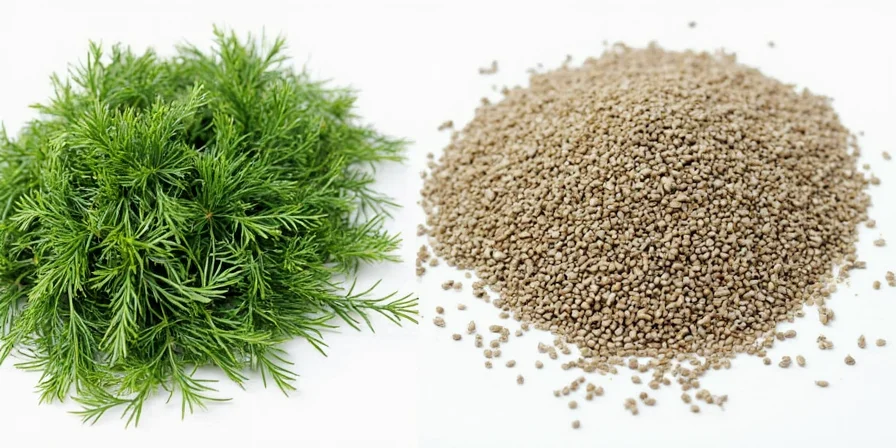
Dill weed and dill seeds are not interchangeable—dill weed refers to the fresh or dried leaves of the Anethum graveolens plant with a bright, grassy flavor, while dill seeds are the mature fruits with an earthier, spicier profile. Understanding these differences prevents recipe failures: use dill weed for fresh applications like fish and sauces where its volatile compounds shine, and dill seeds for pickling and baking where stable compounds withstand heat. This guide delivers chef-tested substitution ratios, scientific explanations for flavor differences, and precise culinary applications you need to elevate your cooking.
What Exactly Is Dill Weed?
Dill weed refers to the fresh or dried leaves of the dill plant (Anethum graveolens). It has a bright, grassy flavor with hints of anise and lemon due to volatile compounds like carvone that evaporate when heated. This makes it ideal for cold applications where freshness matters most.
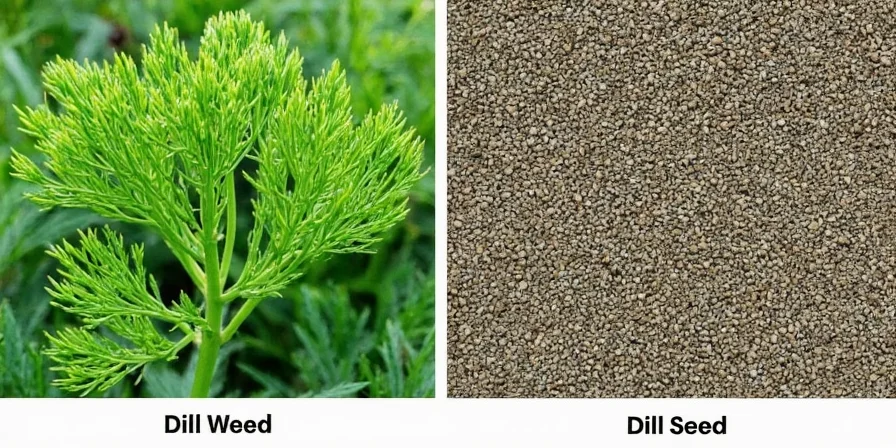
Best Culinary Applications:
- Fish dishes (especially salmon fillets added in last 5 minutes of cooking)
- Cold sauces and dips (dill ranch, tzatziki)
- Salads and egg dishes (fold in just before serving)
- Cucumber sandwiches (add immediately before serving)
What About Those Tiny Little Dill Seeds?
Dill seeds are the mature fruits of the dill plant, containing higher concentrations of stable compounds like dillapiole. These develop during maturation, giving seeds their characteristic earthy, citrusy flavor that withstands heat and fermentation processes.
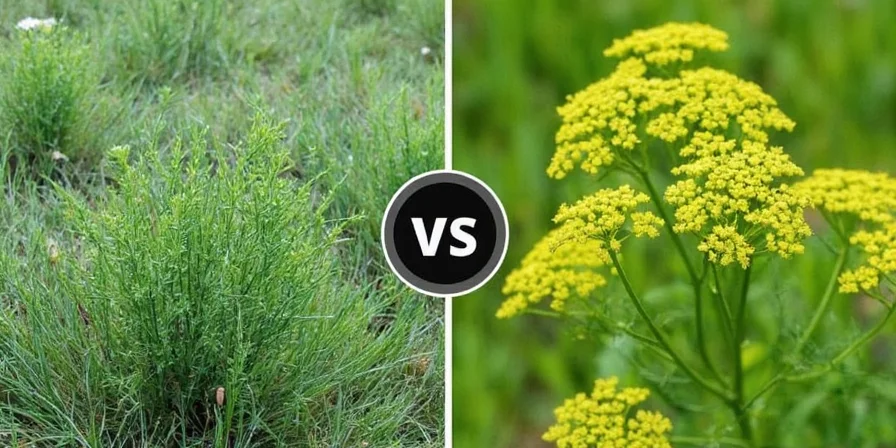
Best Culinary Applications:
- Pickling (1 tablespoon per quart of brine for classic dill pickles)
- Bread and baked goods (toast seeds first to enhance flavor)
- Spice blends (1 part dill seed to 3 parts coriander for pickling spice)
- Slow-cooked dishes (add at beginning of cooking for full flavor infusion)
Key Differences: Flavor, Texture, and Use
Understanding these distinctions prevents common kitchen mistakes. Here's exactly how they differ:
| Aspect | Dill Weed | Dill Seed |
|---|---|---|
| Part of Plant | Leaves (fresh or dried) | Ripened seeds |
| Flavor Profile | Fresh, grassy, anise-like (volatile compounds) | Earthy, citrusy, slightly bitter (stable compounds) |
| Texture | Soft, feathery | Hard, oval, crunchy |
| Heat Stability | Loses flavor above 140°F (60°C) | Retains flavor through boiling and baking |
| Substitution Ratio | 1 tsp dried weed = 1 tbsp fresh | 1 tsp seeds = 2 tsp weed for equivalent flavor impact |
The chemical reason these differ matters for cooking: dill weed's flavor compounds evaporate quickly when heated, making it ideal for finishing dishes. Dill seeds develop stable compounds during maturation that withstand fermentation and baking—explaining why seeds dominate in pickling recipes while weed shines in fresh preparations.
When to Use Which — A Practical Decision Guide
Stop guessing which to use—follow these chef-tested guidelines:
Always Choose Dill Weed When:
- Adding to cold dishes (dips, salads, cold soups)
- Garnishing finished dishes (sprinkle on fish just before serving)
- Recipes specify "fresh dill" (use 3 parts fresh to 1 part dried)
- Temperature won't exceed 140°F (add in final cooking minutes)
Always Choose Dill Seeds When:
- Pickling (1 tbsp seeds per quart of brine)
- Baking bread (toast seeds first at 350°F for 5 minutes)
- Slow-cooked dishes (stews, braises, added at beginning)
- Creating spice blends (combine with mustard and coriander)
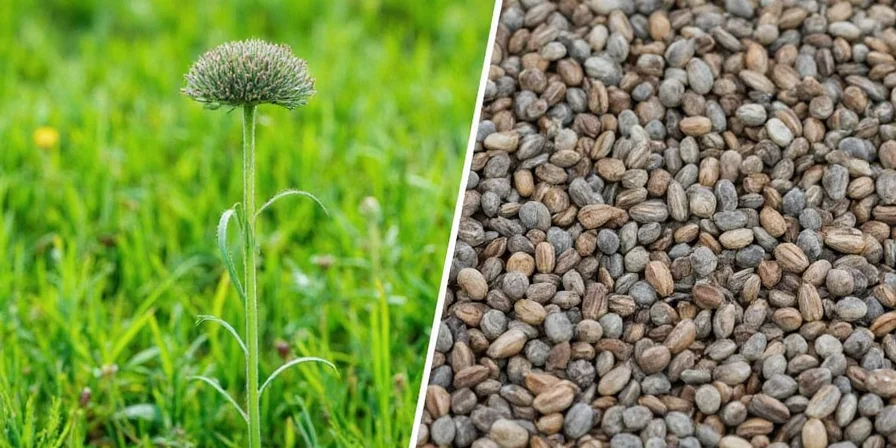
Critical Substitution Guide: Getting It Right
Never ruin a recipe with wrong substitutions again:
- Dill weed → Dill seeds: Use ½ tsp seeds for every 1 tbsp weed (seeds are more potent)
- Dill seeds → Dill weed: Use 2 tbsp fresh weed for every 1 tsp seeds
- Emergency substitutions: Fennel fronds (for weed), caraway seeds (for seeds at ¾ ratio)
- Pickling without dill: Mustard seeds + coriander (½ tsp each per quart) as backup
FAQs: Precision Answers to Common Questions
Can I substitute dill weed for dill seeds in pickling?
No—seeds contain dillapiole that preserves flavor during fermentation. Weed loses potency within 48 hours in brine. For refrigerator pickles (eaten within 2 weeks), you can use 2x the amount of weed, but traditional fermented pickles require seeds.
What's the exact substitution ratio between dried dill weed and dill seeds?
1 teaspoon dill seeds = 1½ tablespoons dried dill weed. This accounts for the concentration difference in stable flavor compounds.
Why do most pickle recipes call for both dill weed AND seeds?
Seeds provide the foundational flavor that survives fermentation, while weed adds fresh top notes. For best results: 1 tbsp seeds + 1 fresh dill head per quart of brine.
How long do they last when stored properly?
- Dried dill weed: 12-18 months (loses 40% flavor potency after 1 year)
- Dill seeds: 3-4 years (retains 80% potency after 2 years)
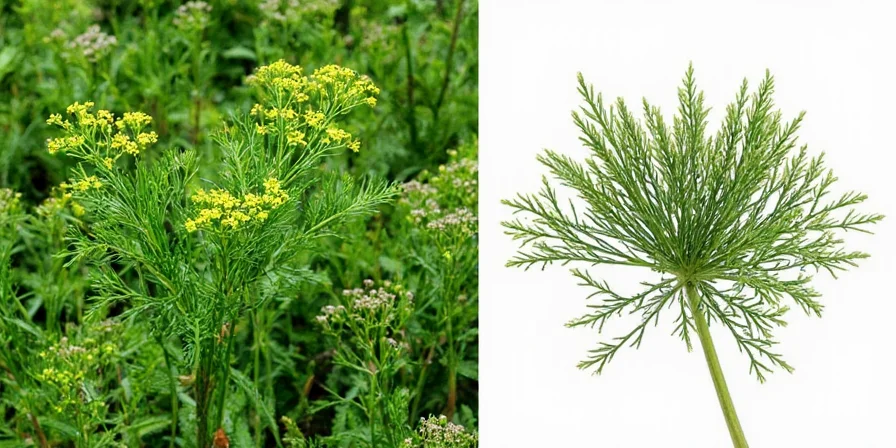
Key Takeaways
Dill weed and dill seeds are chemically distinct forms of the same plant serving different culinary purposes. Dill weed's volatile compounds make it ideal for fresh applications where heat would destroy its flavor, while dill seeds' stable compounds withstand fermentation and baking. Always use seeds for traditional pickling (1 tbsp per quart), and add weed only as a fresh finisher. When substituting, remember the critical ratio: 1 tsp seeds = 1½ tbsp dried weed. Understanding these scientific differences transforms your spice usage from guessing to precision cooking.

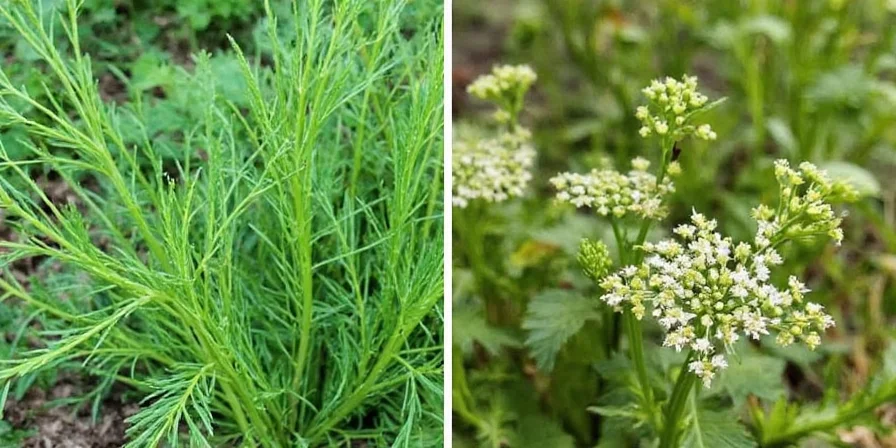









 浙公网安备
33010002000092号
浙公网安备
33010002000092号 浙B2-20120091-4
浙B2-20120091-4